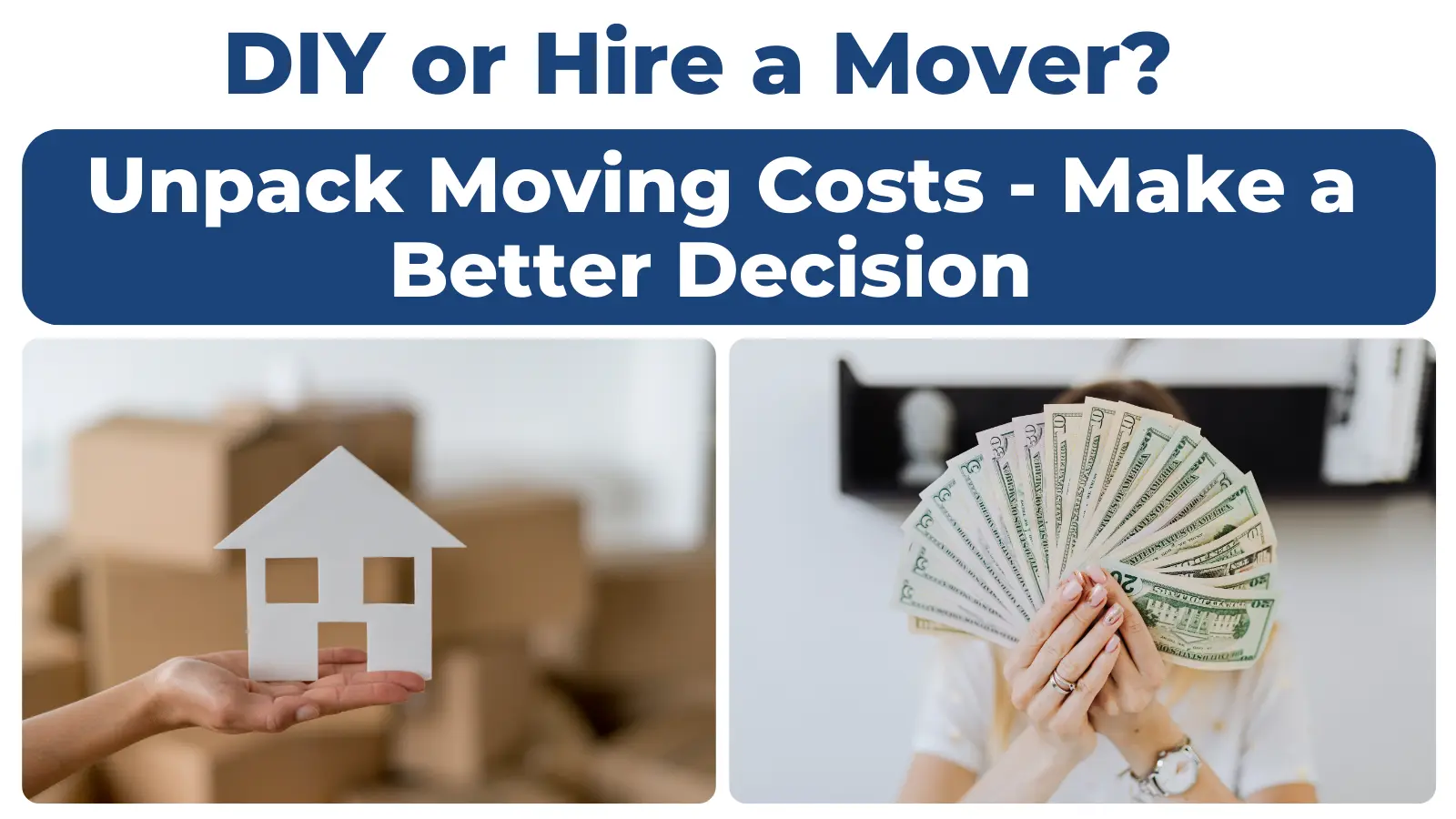That end-of-moving-day bill is usually higher than expected, after you’ve already spent a scary amount of your bank account on moving supplies and took too much time off work to pack. You might wonder if a DIY move is better because it’s cheaper.
Moving costs a lot, even if you do it yourself. Certain expenses are unavoidable, such as boxes, needing a truck big enough to load all your things, loading and unloading those super heavy items you can’t lift yourself, and the less tangible hours spent through the process.
Gain a better understanding of moving costs before deciding whether hiring a mover is worth it. You might be surprised that it is. Here’s a breakdown of what makes moving so expensive:
Why the Cost of Time and Someone Else's Muscle Might Be Worth the Expense
Let's face it, moving takes an excruciating amount of time and effort. Professional movers charge by the hour, and for good reason. Lifting heavy furniture, carefully packing fragile belongings, and navigating tight corners – it's physically demanding work.
The Great Moving Truck Equation: How Long Would It Take Without a Bigger Truck?
Distance definitely matters. The longer distance and more miles translate into fuel costs, vehicle wear and tear, and, of course, driver time. Add the complexity of navigating a large truck through tight city streets or long stretches of highway, and you can see why distance can add up on your moving bill.
Not sure what moving truck size you need? Read "Bailey's Guide to Our Moving and Storage Truck Sizes."
Surprising Costs: Why Stairs & Narrow Hallways Are More Expensive
It's not just the distance between your old and new places that matters. Easy access for loading and unloading can significantly reduce the time and cost of your move. Tight hallways, multiple flights of stairs, or long walks from the curb to the front door all require extra time and manpower, which translates to extra dollars on your final bill.
Moving Day Multiplier Effect: Yes, the Day You Move Matters
The date you choose to move is a sneaky cost factor. Peak moving season, typically summer and weekends, sees a surge in demand for movers. This drives prices up as companies juggle higher operational costs and limited availability. Consider a less popular moving date to potentially snag a more budget-friendly quote.
Beyond the Movers: The Domino Effect of Moving
Moving is more than just getting your stuff from point A to point B. It's a domino effect that can topple your budget in unexpected ways. Think about:
- Security deposits and rent upfront: New apartments often require a security deposit and potentially first and last month's rent, putting a significant dent in your savings.
- Hidden costs of a new home: Factor in potential appliance installation fees, utility connection charges, and unforeseen repairs that might pop up in your new place.
- Packing supplies and hidden extras: Packing tape, boxes, bubble wrap – these seemingly small costs can quickly add up. Don't forget hidden fees for specialty moving services for items like pianos or antiques.
Need to know more about Colorado or Utah security deposit laws? Read the "Complete Guide to Colorado Security Law" and "Utah Security Deposit Law Explained (2025): Refunds, Fees, & Rights."
Why is Moving so Expensive? It Doesn’t Have to Be
Moving doesn't have to be a financial nightmare. Understand the factors that contribute to costs and make more informed consumer decisions. Consider getting quotes from multiple movers and comparing prices based on the services you need.
Contact Bailey's Moving and Storage today for a personalized quote. While moving might seem like a big expense upfront, the time and stress you'll save can easily outweigh the cost. DIY moves often end up being more expensive than anticipated, with unexpected costs popping up at every turn.
With Bailey's, you'll have a clear understanding of your moving costs from the start, allowing you to plan and budget accordingly. Let us handle the heavy lifting, so you can focus on the exciting part – settling into your new home.


